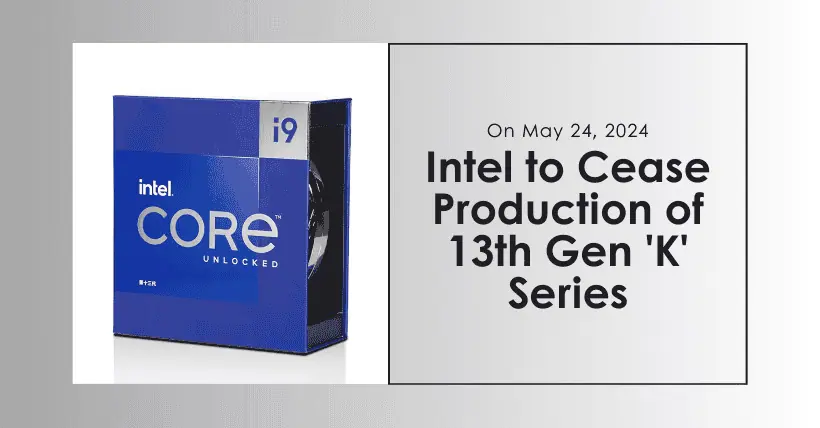A few days ago, the editor shared with everyone that certain mid-to-high-end models of Intel’s 13th and 14th generation Core processors might cause instability and crashes in games (Bottom of this article), which is a problem of some commonality and has attracted the attention of many friends.
Regarding this, Intel’s attitude has always been low-key, and has not made a direct response. Many friends, like the editor, are hoping that Intel can provide an explanation soon, or make some adjustments to the product line.

Today, the editor wants to share the latest news about Intel’s adjustment to the product line. However, it’s important to emphasize that this adjustment is unrelated to the issue mentioned before.
So, what is the news? Recently, a notice sent by Intel to its partners on March 21 was exposed, and this document has now been published on Intel’s official website, please refer to the Following Images.
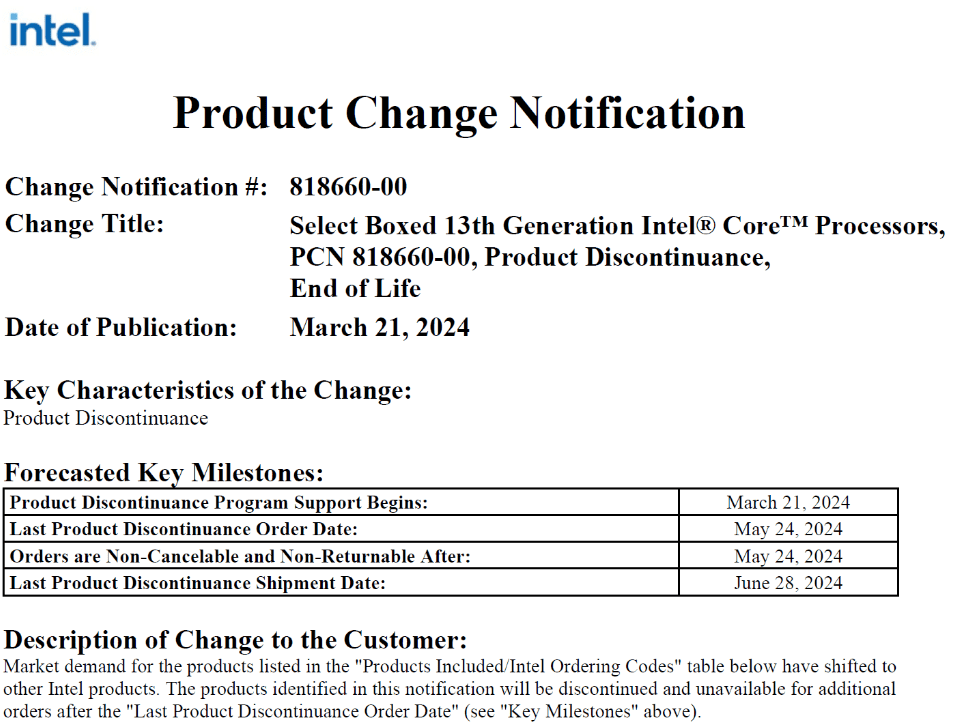
In this document, Intel clearly states that it will discontinue the “K” series processors of the 13th generation Core on May 24. The specific models to be discontinued include Core i5-13600K, Core i5-13600KF, Core i7-13700K, Core i7-13700KF, Core i9-13900K, and Core i9-13900KS.
Intel reminds its partners that OEM manufacturers and processor retailers can place their last orders for the above models by May 24, and all orders will be completed by June 28.
Intel did not specify the exact reasons for discontinuing these models. However, for seasoned digital hardware enthusiasts, this move is quite understandable.
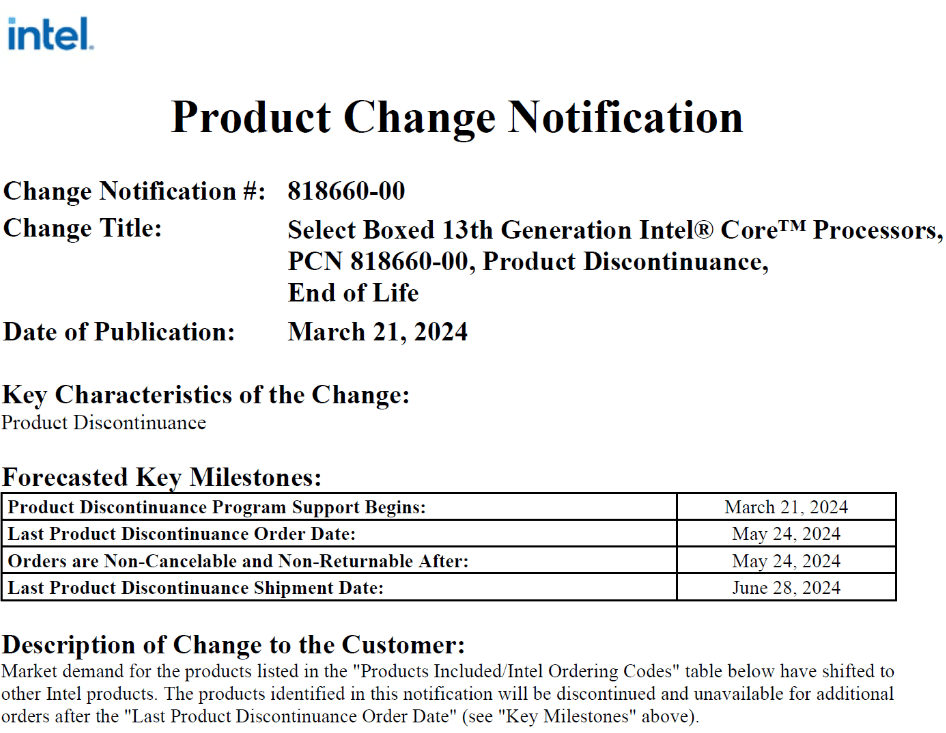
There are two main reasons: First, the performance of the 13th generation Core processors is very close to that of the 14th generation, with very marginal improvements, almost negligible. In this case, for Intel, having both generations on sale simultaneously poses a dilemma: whether to reduce the price of the 13th generation or not.
If the price is not reduced, the prices of both generations are essentially the same, but the 14th generation Core processor has slightly better performance. Therefore, consumers will undoubtedly choose the 14th generation over the 13th, making the latter hard to sell.
Conversely, if the price of the 13th generation Core processor is not reduced, and since the performance of the two generations is almost the same if the 13th generation is slightly cheaper, many would prefer it for its cost-effectiveness, making the 14th generation hard to sell.
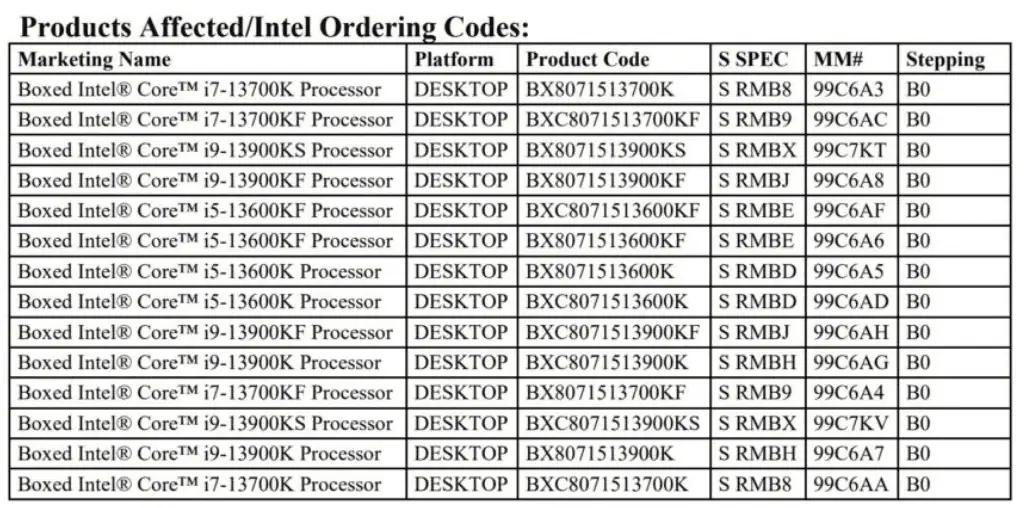
This situation is very awkward and disadvantageous for Intel, akin to fighting with itself. On the other hand, Intel also faces strong competitive pressure from AMD, so Intel simply chose to discontinue the 13th-generation Core processors.
At this point, some might wonder: will the 12th generation Core processors also be adjusted or discontinued? The answer is no, Intel has not announced any plans to discontinue them.
In summary, Intel’s decision to discontinue the 13th generation Core processors is mainly market-driven and is essentially unrelated to the instability issues in gaming mentioned earlier, representing a “technical adjustment.”
The 13th generation Core processors were released at the end of 2022 and have been on the market for less than a year and a half, which is relatively short-lived. However, it is expected that consumers will still be able to purchase them in the short to medium term, although it is not highly recommended.
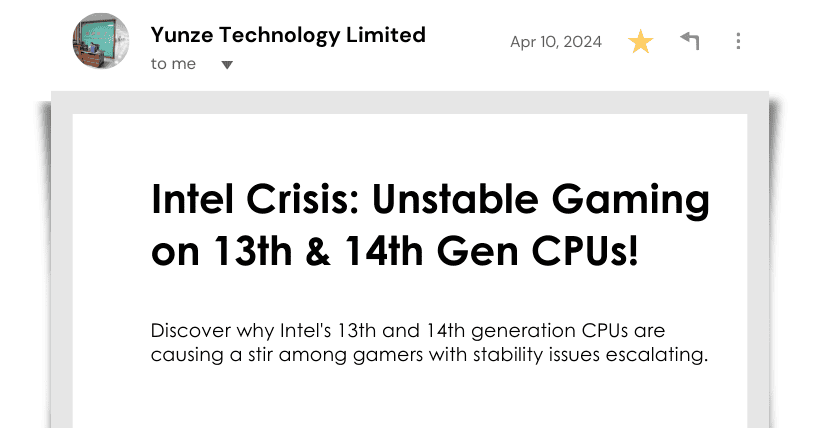

Disclaimer: This article is created by the original author. The content of the article represents their personal opinions. Our reposting is for sharing and discussion purposes only and does not imply our endorsement or agreement. If you have any objections, please contact us through the provided channels.



